 Click the pictures to enlargeCondition At Hatching
Click the pictures to enlargeCondition At HatchingThe peregrine falcon eyases are semialtricial, nidicolous; covered with off-white (prepenne) down. Semi altricial means: Covered with down, incapable of departing from the nest, and fed by the parents. In species like the peregrine falcon we speak of semi-altricial 2, hatch with the eyes closed.
The bill and feet pinkish to pale gray with eyes closed. They weigh about 35–40 g. If eyes open with food-begging first day, they are slitlike. The eyases obtain 2 downy plumages.
 Growth and developmentAt 5 days
Growth and developmentAt 5 days after hatch, their mass has doubled. The eyas can sit with relative ease, and the open eyes are more round.
At 6–8 days of age the second down (mesoptile or preplumulae) starts to emerge, first on humeral and alar tracts but no down visible on belly at 6 day, although on the legs and belly at 8 days.
Also second down is well out on the wings and looks a bit blueish and sheaths of primaries breaking skin on wings.
 By 10 days of age
By 10 days of age the
second down is complete and uniform and outer rectrices are breaking skin. At 10 days, primaries growing at 2–3 mm/d, rectrix sheath not yet split.
At 14 days the second down is dense and long, rectrix sheath about 2 mm and typically ninth primary emerges from sheath.
By day 17 the contour feathers start to push out prepennae and only pale (buffy) tips of rectrices have emerged but growing at about 2 mm/d (since day 13).
 By 10 days of age
By 10 days of age the
second down is complete and uniform and outer rectrices are breaking skin. At 10 days, primaries growing at 2–3 mm/d, rectrix sheath not yet split.
At 14 days the second down is dense and long, rectrix sheath about 2 mm and typically ninth primary emerges from sheath.
By day 17 the contour feathers start to push out prepennae and only pale (buffy) tips of rectrices have emerged but growing at about 2 mm/d (since day 13).
 At 20 days
At 20 days while still with heavy coat of second down, brown contour feathers are visible on margins of wings, tail, and faintly around the eyes.
By 30 days young appears about half down-covered and half feathered; while side of face well feathered, crown still covered with down.
 At 35 days
At 35 days while mostly feathered, large conspicuous patches of down around legs, under wings, and on crown.
At 40 days almost fully feathered with traces of down on crown and under wings and outer several remiges; rectrices not fully grown but bird capable of weak flight.
From my Peregrine falcon website:
Copyright Froona
All Rights reserved
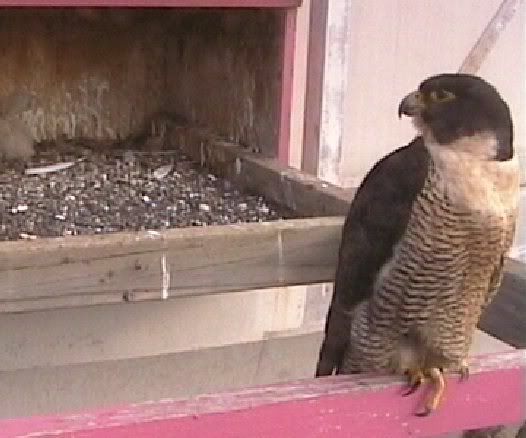
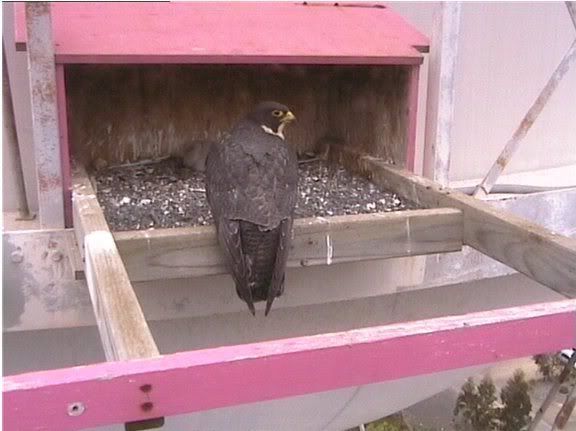
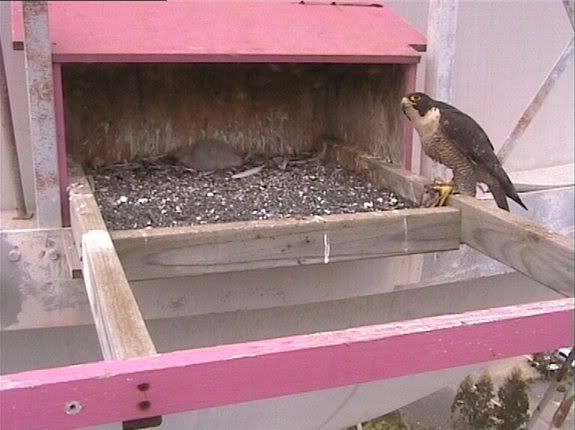
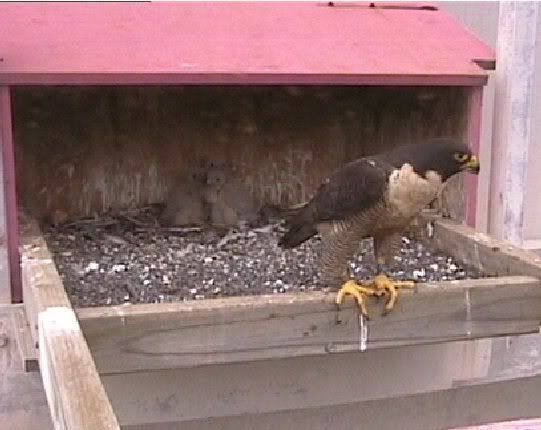
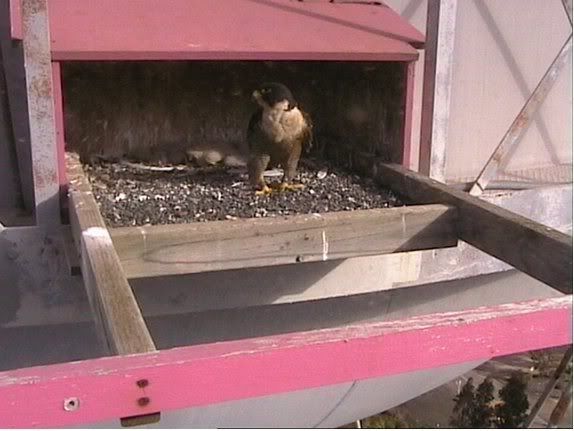
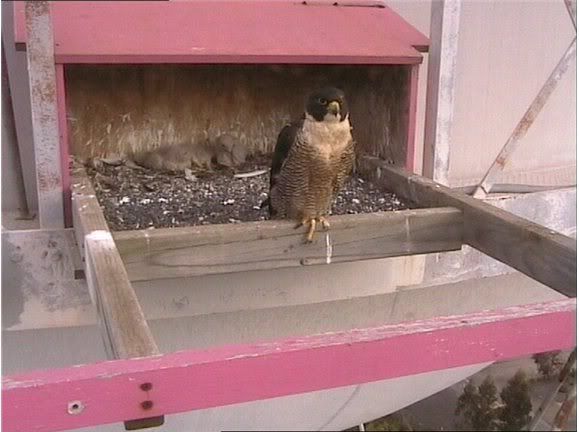
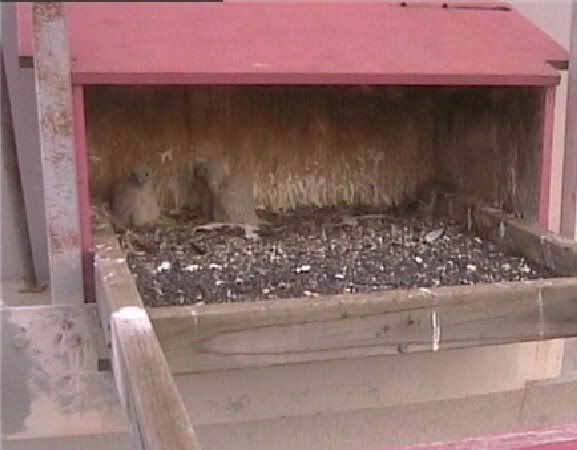
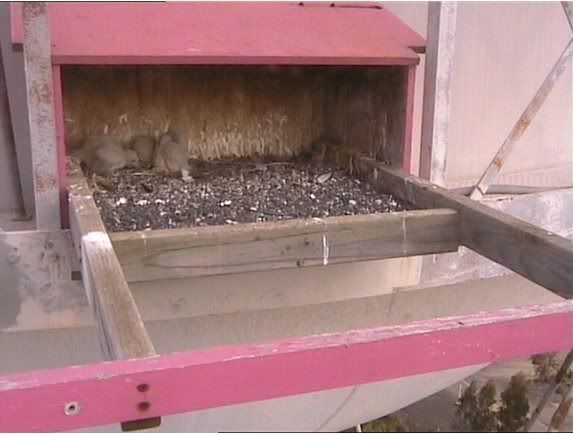
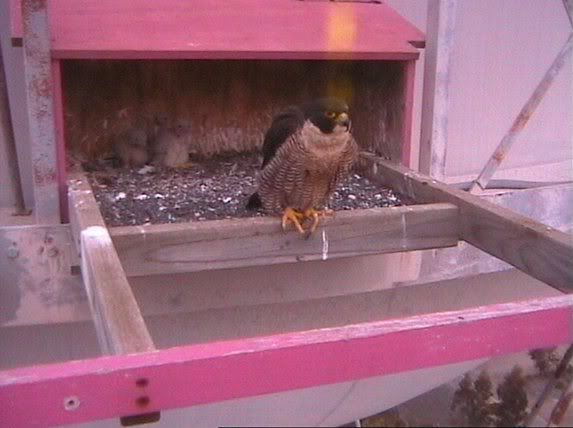
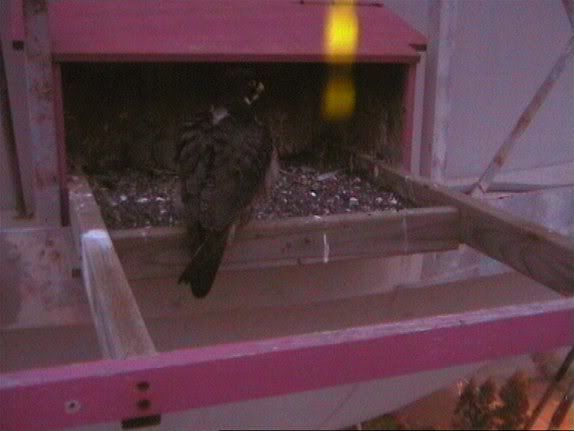
 Click the pictures to enlarge
Click the pictures to enlarge











